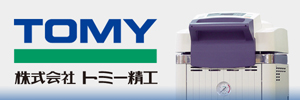PH-111:Evaluation of whole genome amplification methods for bacterial single-cell genomics.
1Dept. of Life Sci. & Med. Biosci., Waseda Univ., 2CREST, JST, 3Res. Org. for Nano & Life Innovation, Waseda Univ., 4School of Creative Science and Engineering, Waseda Univ.
In recent years, the introduction of whole genome amplification (WGA) techniques such as multiple displacement amplification (MDA) and the recently introduced multiple annealing and looping based amplification cycles (MALBAC) has revolutionized our ability to manipulate minute amounts of DNA. Taking advantage of these methods, efforts to perform WGA for bacterial single-cell analysis have been employed to further understand the role of bacteria in their natural environment or in their residing hosts. These two techniques have proven to be highly applicable in genome amplification where MDA has been employed as the major technique for amplification of single bacterial cell genomes with several reports on the success in genome completion while MALBAC is proven as a technique that reduces amplification bias resulting in higher amplification uniformity. However, a direct comparison between both WGA methods in the context of single bacterial cell analysis has not been thoroughly conducted. In this work, our goal is to perform a comparative analysis between MDA and MALBAC to identify the most appropriate technique for single bacterial cell analysis. Here, we used two bacteria, Escherichia coli and Vibrio alginolyticus, as models. Single-cells were sorted by flow cytometry and were subjected to MDA or MALBAC. Successful genome amplification was determined by PCR using eubacterial specific primers and single-cell amplified genomes (SAG) were then sequenced with the Illumina Miseq system. Comparison of both SAGs amplified by MDA and MALBAC were conducted based on genome coverage, coverage depth, quality of contigs and chimeric read rate. As a result, we showed that MALBAC showed higher genome amplification uniformity in comparison to MDA. Besides, MALBAC succeeded to obtain better contigs and also resulted in less number of chimeric reads. Based on our comparison analysis, we showed that MALBAC was the preferable technique for WGA of single bacteria cells.
keywords:Single-cell genomics,Bio informatics,Microbiology,Microbiology,Microbiology




